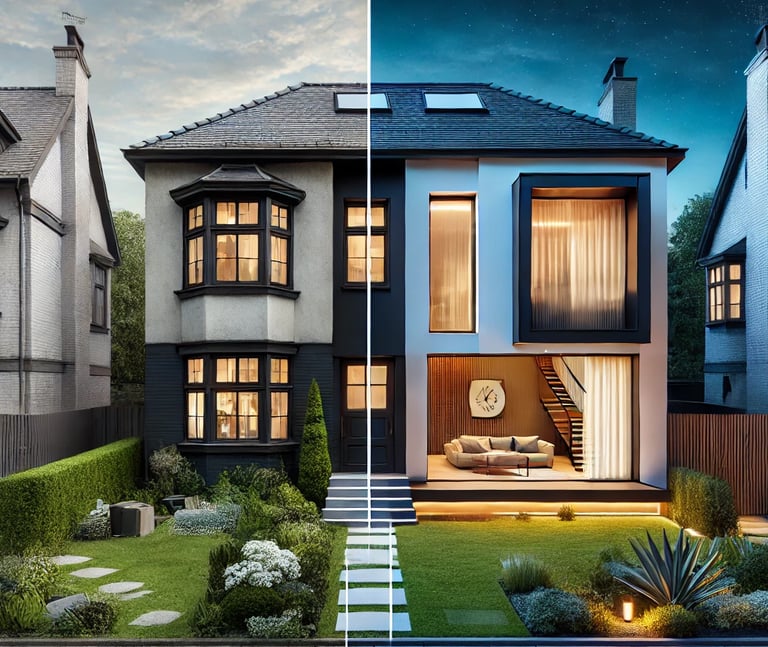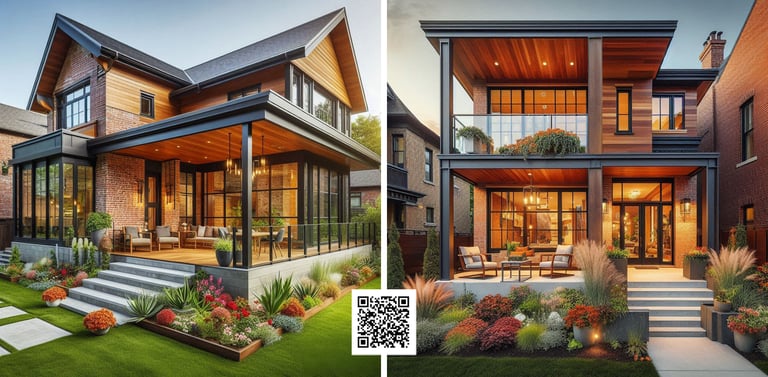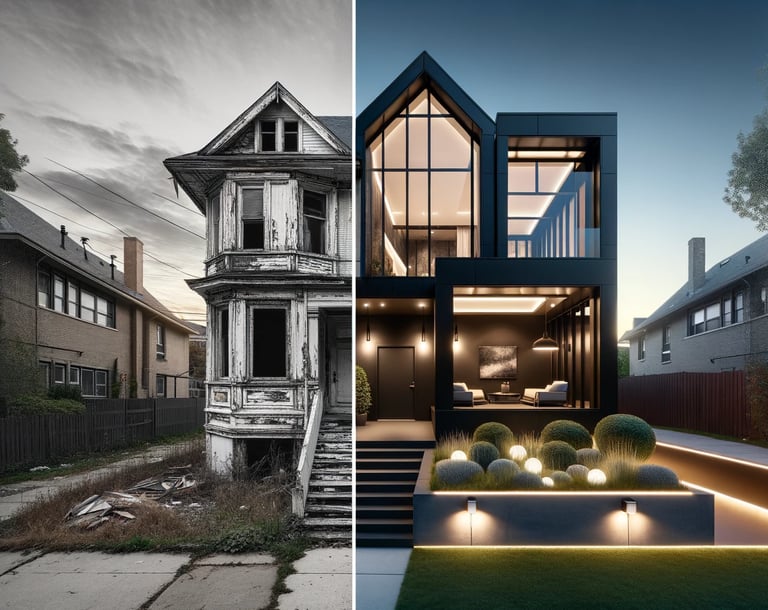Enjoy a 10% discount on your FIRST order! Use the code START25 at checkout
Should You Drastically Modernize Your Home? Pros, Cons, and Tips for Making the Right Choice
Modernizing a home can breathe new life into an outdated property, making it more functional, stylish, and aligned with today’s trends. But is a drastic modernization always the right move? In this blog, we’ll explore when it makes sense to transform your home, when to proceed cautiously, and how to make the most of the process.
TIPS
Samantha Reed
12/27/20242 min read
When Drastic Modernization Makes Sense
Outdated Architecture
Homes with dated designs, such as 1970s split-levels or 1980s ranches, often benefit from modernization. These properties can lack the open layouts and sleek aesthetics that today’s homeowners crave.Maximizing Property Value
In neighborhoods where contemporary designs are trending, modernizing your home can significantly boost its resale value and curb appeal.Functional and Energy Efficiency Upgrades
Older homes often have inefficient layouts and outdated systems. Modernizing can introduce better insulation, energy-efficient windows, and smarter layouts that make daily living more enjoyable.
When to Be Cautious About Modernizing
Historic or Architecturally Significant Homes
Preserving the charm and uniqueness of historic homes is often more valuable than modernizing. Drastic changes could diminish their character and appeal.Neighborhood Aesthetic
If your home is in a community where traditional designs dominate, a dramatic modernization could make it stand out—but not necessarily in a good way. Consider blending contemporary upgrades with classic elements to maintain harmony.Budget Constraints
Modernizing can be expensive, especially when structural changes are involved. If your budget doesn’t allow for high-quality updates, the results may not justify the investment.
Pros of Drastic Modernization
Enhanced Curb Appeal: A sleek, modern facade can turn heads and attract potential buyers.
Increased Property Value: Modern homes often command higher prices in competitive markets.
Improved Functionality: Open layouts, larger windows, and upgraded systems make homes more livable and enjoyable.
Energy Efficiency: Incorporating modern materials and technologies can reduce energy bills and carbon footprints.
Cons to Consider
Cost: Transforming a home dramatically requires a significant financial investment.
Loss of Character: Over-modernizing can strip a home of its original charm and uniqueness.
Neighborhood Mismatch: A home that looks too different from its surroundings might struggle to appeal to buyers.


Examples of Successful Modernizations
Mid-Century Modern Updates
Transforming a mid-century home with sleek lines, large windows, and minimalist landscaping can create a stunning blend of old and new.Traditional to Contemporary
Updating a classic ranch-style house with a monochrome color palette, geometric designs, and modern lighting fixtures can yield impressive results.
Tips for a Balanced Approach
Preserve Unique Features
Keep elements that add character, such as original woodwork or unique architectural details, while updating other aspects.Work with a Professional
Partnering with an experienced designer ensures your vision aligns with the home’s potential and the surrounding area.Focus on Functionality
Prioritize updates that improve how the home works for your family, such as better storage, open layouts, or improved lighting.
Is Modernization the Right Move for You?
Drastically modernizing a home is a significant decision that depends on your goals, budget, and the property’s potential. When done thoughtfully, it can transform a dated house into a contemporary masterpiece. However, it’s essential to weigh the pros and cons to ensure your investment adds value and reflects your vision.


Ready to elevate your home’s exterior? Let’s explore how the perfect modernization can transform your space into something beautiful and enduring.





